Everyday AI refers to artificial intelligence used in regular, daily activities—like voice assistants, smart thermostats, and cleaning robots. These systems use machine learning to adapt to your preferences and improve performance over time.
In the not-so-distant past, artificial intelligence was the stuff of science fiction—robot butlers, talking computers, and smart homes that anticipated your every need. Today, the once-futuristic world is knocking at your front door. Literally. Welcome to the age of everyday AI—where robots in everyday life aren’t dreams but devices, where AI technology isn’t tomorrow, it’s today.
From smart speakers to AI-powered vacuum cleaners, we are entering a new era where AI in daily life is becoming not just common, but essential. As we welcome these robotic neighbors into our homes, it’s time to explore the impact of AI, the benefits of AI in everyday life, and even the ethical implications of everyday AI.
The Rise of AI Integration in Daily Life
Artificial intelligence is no longer confined to research labs and tech giants. It's embedded in our smartphones, thermostats, refrigerators, and even our cars. According to Statista, over 8.4 billion AI-powered devices were in use in 2023—and the number is growing rapidly.
Whether it’s your Alexa playing music or your Nest thermostat optimizing energy use, these technologies are part of a sweeping AI integration that is redefining what it means to live in the modern world.
This kind of home automation with AI—blending convenience, personalization, and predictive behavior—isn’t just a trend. It’s a transformation.
Learn more about emerging automotive AI technologies at the Noble Quote Learning Center
Home Robots and AI Assistants: Your New Housemates
If you’ve ever used a Roomba, asked Siri to call a friend, or relied on a robot mop to clean up a spill, you’ve already lived with home robots. These aren’t humanoid droids, but smart devices equipped with AI-powered sensors and algorithms designed to make life easier.
Some popular AI robots for home use include:
- Ecovacs Deebot (AI-guided vacuuming and mopping)
- Amazon Astro (Alexa with wheels)
- Temi robot (telepresence and smart home control)
These AI assistants for daily tasks can schedule your appointments, adjust your lights, remind you to take your meds, and even keep an eye on your pets via mobile-controlled cameras.
But the real magic lies in their learning ability—they observe your routines, preferences, and habits to deliver smarter service over time.
The Benefits of Everyday AI
The benefits of AI in everyday life are hard to ignore:
- Efficiency & Convenience: Your robot vacuum cleans while you work. Your car’s AI navigates traffic for you. Your fridge suggests recipes based on what’s inside.
- Personalization: AI learns your music taste, your fitness goals, even your sleep patterns to customize your experience.
- Accessibility: Voice-controlled AI helps the elderly or physically challenged perform tasks they might otherwise struggle with.
- Safety: AI-enhanced doorbells (like Ring) and smart locks offer real-time alerts and security.
This growing list of artificial intelligence applications is why understanding everyday AI is no longer optional—it's a part of being an informed, empowered consumer.
The Challenges of Living with Robots
With innovation comes friction. The challenges of AI in everyday life are just as important to explore:
- Privacy Concerns: Smart devices are listening, recording, and storing data. Who owns it, and how is it protected?
- Over-Reliance: As we hand off tasks to machines, are we losing valuable skills like navigation, memory, or even social interaction?
- Bias in AI Algorithms: These systems are only as fair as the data they’re trained on. AI can replicate or even amplify social inequalities.
- Security Risks: AI-powered devices are vulnerable to hacking, data breaches, and manipulation.
These challenges highlight the need to carefully explore the future of AI at home—and be prepared to ask hard questions.
How AI is Changing Communication and Human Interaction
One of the more subtle impacts of AI is on communication. We now talk to machines every day, from voice-activated assistants to chatbots in customer service. But this shift prompts the question: Will AI robots replace human interaction?
While AI can mimic conversation, it can’t yet replicate empathy or emotional nuance. The fear of losing meaningful human connections is real, especially as kids grow up surrounded by AI-powered devices for home instead of playdates and face-to-face conversation.
Yet, when used with intention, AI can enhance communication—like translating foreign languages in real-time or helping non-verbal individuals communicate through text-to-speech technology.
The Social and Ethical Implications of Everyday AI
As robotic neighbors move in, society must grapple with the ethical implications of everyday AI:
- Job Displacement: Workers in transportation, customer service, and manufacturing wonder, how will AI robots affect my job?
- Surveillance vs. Security: Facial recognition tools can prevent crime—or infringe on privacy.
- Autonomy & Consent: Should your thermostat make decisions for you? What if it’s wrong?
These are questions not just for lawmakers or tech developers—but for anyone living with AI. That means all of us.
Preparing for the Future: What Comes Next?
So, what’s next in this digital revolution? Here are future predictions for AI in everyday life:
- Smarter Smart Homes: Homes that anticipate your every need before you ask.
- Emotionally Intelligent Robots: Machines that interpret your tone and mood to better assist you.
- AI-Powered Elder Care: Robots designed to care for the aging population with reminders, mobility help, and companionship.
- Hyper-Personalization: From your home to your health, AI will tailor everything based on your biometrics and behavior.
- Ambient AI: Invisible, ever-present assistants that require no commands—just context.
As consumers, we must learn about everyday AI, ask questions, and demand ethical development. Want to understand the impact of robots on society? Look no further than your own home.
Concrete Examples of AI in Use Today
Still wondering about the best examples of AI in everyday use? Here are a few:
- Tesla Autopilot – AI-driven driving decisions
- Google Nest – AI-powered climate control
- Roomba – Smart mapping for autonomous cleaning
- Spotify & Netflix – AI-curated recommendations
- ChatGPT & Siri – AI chat and virtual assistants
- Amazon Dash Smart Shelf – Inventory management for your pantry
These innovations aren’t prototypes—they’re products. And they’re already here.
How to Prepare for AI in Everyday Life
Adapting to AI is no longer optional. Here are a few ways to prepare for AI in everyday life:
- Educate Yourself: Stay up to date on new AI tech, privacy settings, and ethical concerns.
- Control Permissions: Regularly audit the settings on your devices.
- Diversify Your Skills: Embrace lifelong learning to remain agile in the workforce.
- Prioritize Human Connection: Balance tech use with face-to-face interaction.
Whether you're a homeowner installing your first smart light, or a parent buying a voice-controlled toy, now’s the time to discover the benefits of AI assistants—and be mindful of their impact.
Conclusion: A World Shared with Robots
As we move forward, living with robots will become as normal as living with pets or neighbors. Whether they help fold your laundry or answer your questions, these machines are here to stay.
The key is balance. We must embrace innovation, question intentions, and always keep humanity at the center of our AI journey.
Because the future isn’t just smart—it’s shared.
Want to learn more about smart tech in vehicles and homes? Visit the Noble Quote Learning Center
Everyday AI Explained: Answers to the Most Common Questions About Living with Robots
What is everyday AI and how does it work?
How is AI being used in daily life right now?
AI is present in navigation apps, home security systems, smart appliances, and even cars. It powers tools like Alexa, Google Maps, Netflix recommendations, and automatic vacuum cleaners, simplifying how we interact with technology.
What are the benefits of AI in everyday life?
AI increases convenience, automates routine tasks, personalizes your experiences, and can help reduce energy use and improve safety in your home or vehicle.
Are AI robots safe for use in the home?
Most AI home robots are safe when used as directed, but it’s important to check for encryption, update firmware regularly, and review data privacy settings to reduce risks.
How will AI impact human jobs and interaction?
AI is already automating some jobs, especially in repetitive tasks, but it's also creating new roles in technology development and support. In homes, AI may reduce human-to-human interactions, so it’s important to use it mindfully.
What are the biggest challenges of using AI in daily life?
Common challenges include privacy concerns, device over-dependence, ethical questions around bias in AI decisions, and data security vulnerabilities.
Can AI improve life for seniors and people with disabilities?
Yes. AI assistants can provide reminders, monitor safety, control smart devices, and enable easier communication, helping people maintain independence.
What are some examples of home robots that use AI?
Popular examples include Roomba (vacuuming), Amazon Astro (mobile assistant), Google Nest (climate control), and Samsung Family Hub (smart refrigerator).
How can I prepare my home for everyday AI devices?
Start with secure Wi-Fi, learn how to control devices via apps or voice, and ensure all firmware is kept up to date. Educate yourself about permissions and privacy settings before use.
Suggestions for you
Read MoreLet’s work together
Every week we showcase three charitable organizations that our donations are sent to. Our clients are able to choose which of these three will receive their gift when they add coverage to their vehicle...

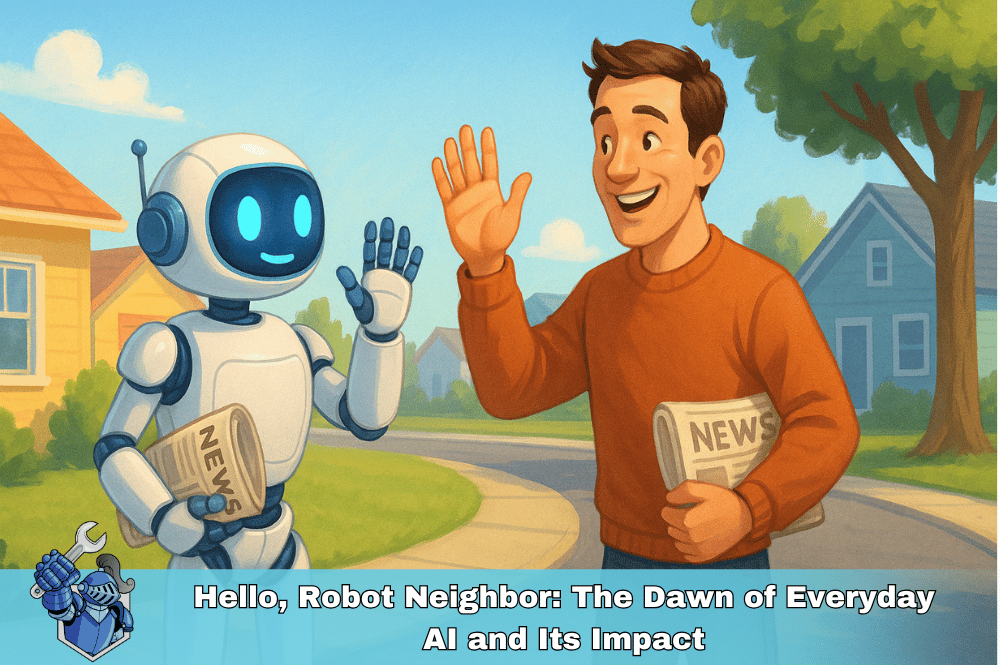
 From Solid Axle to Supercar: The Ultimate Guide to Every Corvette Generation (C1–C8)
From Solid Axle to Supercar: The Ultimate Guide to Every Corvette Generation (C1–C8)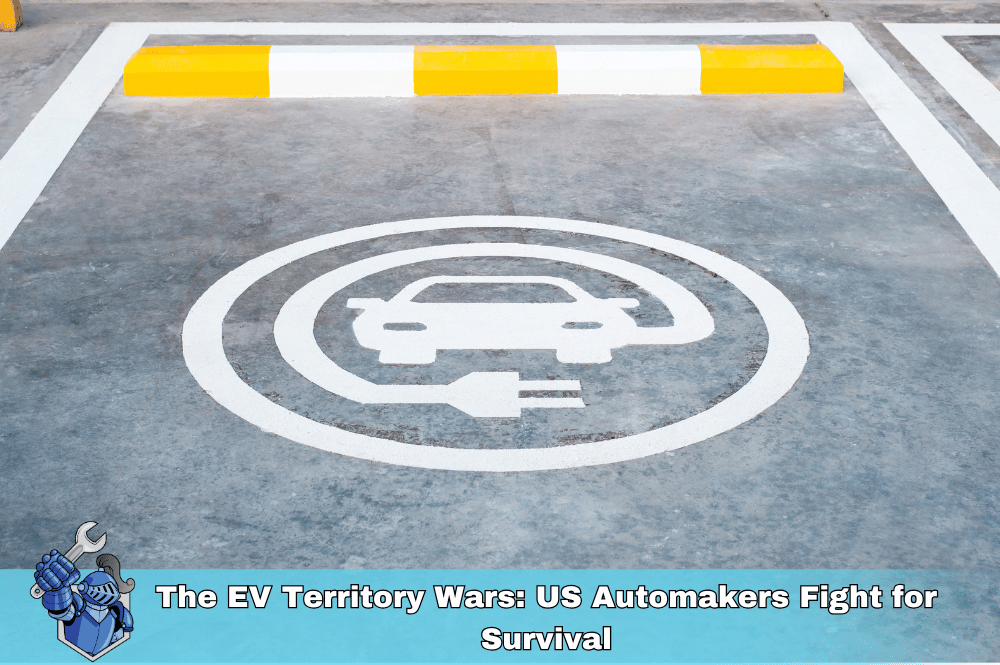 The EV Territory Wars: US Automakers Fight for Survival
The EV Territory Wars: US Automakers Fight for Survival Drive Away Richer? Credit Card Secrets for Smart Car Buying
Drive Away Richer? Credit Card Secrets for Smart Car Buying Understanding Car Leasing: A Complete Guide for First-Timers
Understanding Car Leasing: A Complete Guide for First-Timers Family First, Finances Second? The Real Cost of Owning a Toyota Highlander
Family First, Finances Second? The Real Cost of Owning a Toyota Highlander The Crypto Long Game: Proven Strategies for Building Generational Wealth
The Crypto Long Game: Proven Strategies for Building Generational Wealth Living with a Legend: The Hidden Costs of Dodge Challenger Hellcat Ownership
Living with a Legend: The Hidden Costs of Dodge Challenger Hellcat Ownership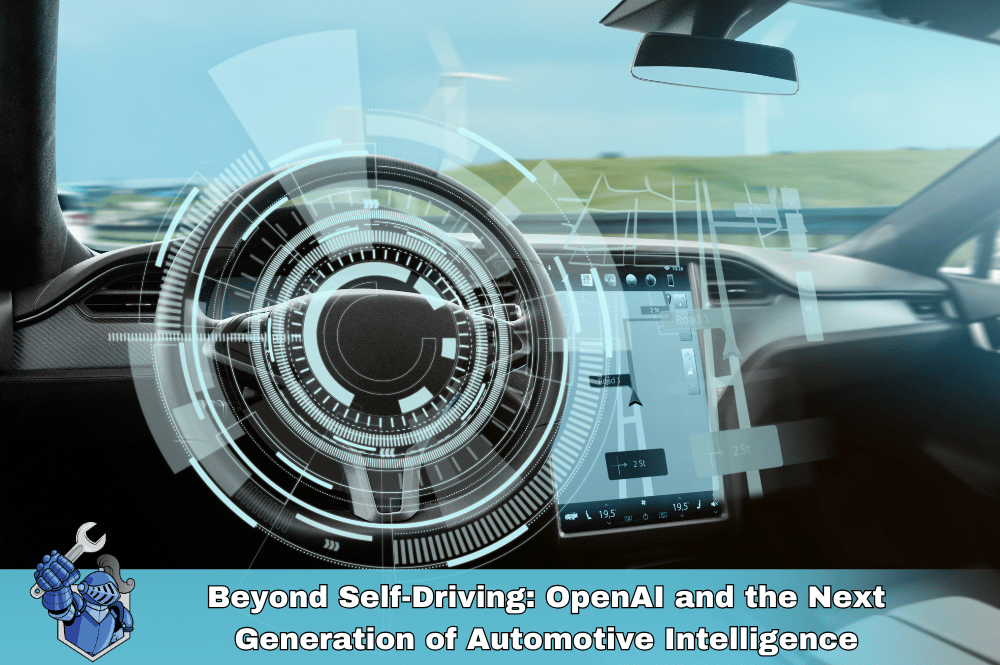 Beyond Self-Driving: OpenAI and the Next Generation of Automotive Intelligence
Beyond Self-Driving: OpenAI and the Next Generation of Automotive Intelligence Blockchain Basics: The Technology Behind Cryptocurrencies
Blockchain Basics: The Technology Behind Cryptocurrencies New vs. Used: A Financial Showdown for Your Next Vehicle
New vs. Used: A Financial Showdown for Your Next Vehicle Depreciation Demystified: Planning for Your Car’s Future Value
Depreciation Demystified: Planning for Your Car’s Future Value Smart Buyer’s Guide: Ford F-250 Review and Long-Term Ownership Costs (2022–2024)
Smart Buyer’s Guide: Ford F-250 Review and Long-Term Ownership Costs (2022–2024) DIY Danger? The Financial Risks of Handling Car Repairs Yourself
DIY Danger? The Financial Risks of Handling Car Repairs Yourself The Downtime Trap: How Car Repairs Can Cost You More Than Just the Bill
The Downtime Trap: How Car Repairs Can Cost You More Than Just the Bill Tech Troubles Ahead? The Rising Costs of Modern Vehicle Repairs
Tech Troubles Ahead? The Rising Costs of Modern Vehicle Repairs Drive Smart, Save Smarter: Your Guide to Budgeting for Car Care
Drive Smart, Save Smarter: Your Guide to Budgeting for Car Care Don’t Let Tariffs Hike Your Bills: The Smart Way an Extended Warranty Saves You on Car Repairs
Don’t Let Tariffs Hike Your Bills: The Smart Way an Extended Warranty Saves You on Car Repairs Chevy Colorado: Unpacking the Features and the Real Cost of Ownership
Chevy Colorado: Unpacking the Features and the Real Cost of Ownership Safe Kids: Your Comprehensive Guide to Child Car Seat Installation Tips and Guidelines
Safe Kids: Your Comprehensive Guide to Child Car Seat Installation Tips and Guidelines Unlock Better Opportunities: Your Guide to Understanding and Improving Your Credit Score
Unlock Better Opportunities: Your Guide to Understanding and Improving Your Credit Score Beyond the Hype: A Realistic Look at Hyundai Ioniq 5 Ownership Costs and Performance
Beyond the Hype: A Realistic Look at Hyundai Ioniq 5 Ownership Costs and Performance Bitcoin vs. Cash: A Head-to-Head Comparison of Features
Bitcoin vs. Cash: A Head-to-Head Comparison of Features Decoding Your Wallet: The Benefits of Using Cash and Credit Wisely
Decoding Your Wallet: The Benefits of Using Cash and Credit Wisely Kia Telluride Review: Unpacking the Features and the Real Cost to Own
Kia Telluride Review: Unpacking the Features and the Real Cost to Own NobleQuote: Best Auto Protection, Not Just the Oldest
NobleQuote: Best Auto Protection, Not Just the Oldest What is a Home Warranty and Do You Need One?
What is a Home Warranty and Do You Need One? Recession-Proof Your Ride: Why an Extended Car Warranty Makes Sense Now
Recession-Proof Your Ride: Why an Extended Car Warranty Makes Sense Now RV Road Trip Ready: Secure Your Adventures with Extended Warranty Coverage
RV Road Trip Ready: Secure Your Adventures with Extended Warranty Coverage Stop Paying for Potholes: The Smart Way to Protect Your Wheels and Tires
Stop Paying for Potholes: The Smart Way to Protect Your Wheels and Tires Don’t Get Stuck With Repair Bills: Ford Edge Warranty Coverage Explained
Don’t Get Stuck With Repair Bills: Ford Edge Warranty Coverage Explained Navigating the Online Vehicle Marketplace: Your Comprehensive Guide to Finding the Perfect Car or Truck
Navigating the Online Vehicle Marketplace: Your Comprehensive Guide to Finding the Perfect Car or Truck Maximize Your Savings: Understanding Your Vehicle Service Contract Deductible Options
Maximize Your Savings: Understanding Your Vehicle Service Contract Deductible Options Vehicle Service Contracts for SUVs and Trucks: Protecting Your Investment
Vehicle Service Contracts for SUVs and Trucks: Protecting Your Investment What to Do If Your Vehicle Service Contract Claim Is Denied
What to Do If Your Vehicle Service Contract Claim Is Denied What Happens to My Vehicle Service Contract If I Sell My Car?
What Happens to My Vehicle Service Contract If I Sell My Car? Extended Car Warranty with Active Factory Coverage: Smart Move or Waste of Money?
Extended Car Warranty with Active Factory Coverage: Smart Move or Waste of Money? Nissan Pathfinder Common Problems: A Complete Repair Guide
Nissan Pathfinder Common Problems: A Complete Repair Guide DIY Oil Change: Do It Better Than the Pros (and Save Money!)
DIY Oil Change: Do It Better Than the Pros (and Save Money!) Keeping vs. Selling: Weighing Your Car Options & the Value of an Extended Car Warranty
Keeping vs. Selling: Weighing Your Car Options & the Value of an Extended Car Warranty Beyond Coverage: How Extended Warranties Can Expedite Your Car Repairs Amid Supply Chain Challenges
Beyond Coverage: How Extended Warranties Can Expedite Your Car Repairs Amid Supply Chain Challenges Protecting Your Ride Like Jalen Protects the Pocket: Cars, Eagles, and Smart Investments
Protecting Your Ride Like Jalen Protects the Pocket: Cars, Eagles, and Smart Investments Rivian R1S Review: Is This the Ultimate Electric Adventure SUV? (2025)
Rivian R1S Review: Is This the Ultimate Electric Adventure SUV? (2025) The Truck Owner’s Peace of Mind: Why Noble Quote Leads the Pack in Truck Repair Protection
The Truck Owner’s Peace of Mind: Why Noble Quote Leads the Pack in Truck Repair Protection Noble Quote: Driving with Confidence, Protected from Unexpected Repairs
Noble Quote: Driving with Confidence, Protected from Unexpected Repairs Ferrari vs. Lamborghini: A History of Innovation and Rivalry
Ferrari vs. Lamborghini: A History of Innovation and Rivalry Porsche GT3: Beyond the Numbers – The Soul-Stirring GT3 Experience
Porsche GT3: Beyond the Numbers – The Soul-Stirring GT3 Experience Kansas City Chiefs Players: You Won’t Believe What They’re Driving!
Kansas City Chiefs Players: You Won’t Believe What They’re Driving! Dodge TRX: King of the Off-Road
Dodge TRX: King of the Off-Road Ford Raptor Extended Warranty Guide: Conquer the Road with Confidence
Ford Raptor Extended Warranty Guide: Conquer the Road with Confidence Subaru Extended Warranty: Your Ultimate Guide
Subaru Extended Warranty: Your Ultimate Guide Mazda Extended Warranty: Your Comprehensive Guide
Mazda Extended Warranty: Your Comprehensive Guide Protect Your Car & the Planet: Introducing NobleQuote's Green Choice Program
Protect Your Car & the Planet: Introducing NobleQuote's Green Choice Program Chevy Malibu Ownership: Staying Ahead of the Repair Curve
Chevy Malibu Ownership: Staying Ahead of the Repair Curve Supercar Dreams on a Budget: The Most Affordable Exotics for First-Time Buyers
Supercar Dreams on a Budget: The Most Affordable Exotics for First-Time Buyers The Most Common Car Breakdowns of 2025 (And How to Avoid Them)
The Most Common Car Breakdowns of 2025 (And How to Avoid Them) Porsche Cayenne Engine Problems: What to Watch For
Porsche Cayenne Engine Problems: What to Watch For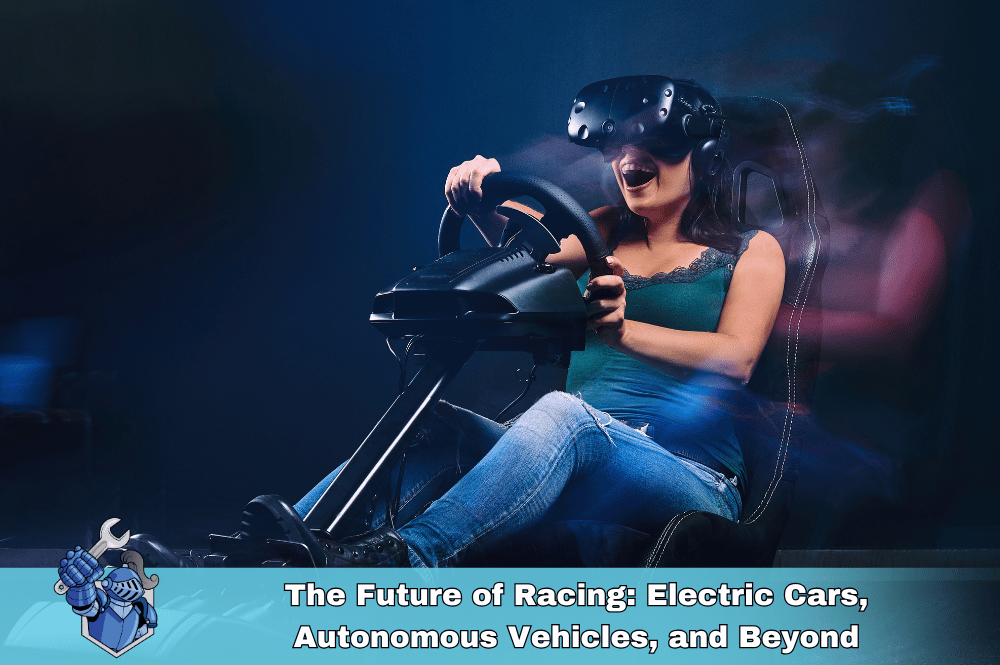 The Future of Racing: Electric Cars, Autonomous Vehicles, and Beyond
The Future of Racing: Electric Cars, Autonomous Vehicles, and Beyond We've Moved! Noble Quote's New Home at the Lake of the Ozarks
We've Moved! Noble Quote's New Home at the Lake of the Ozarks Warranty Myths Busted: Don't Fall for These Common Misconceptions
Warranty Myths Busted: Don't Fall for These Common Misconceptions The "New Car Smell" Doesn't Last Forever: Protecting Your Investment Long-Term
The "New Car Smell" Doesn't Last Forever: Protecting Your Investment Long-Term Forza: The Perfect Blend of Simulation and Arcade Fun
Forza: The Perfect Blend of Simulation and Arcade Fun If NASCAR Had Car Warranties: The Pit Stop Chaos You’d See
If NASCAR Had Car Warranties: The Pit Stop Chaos You’d See 5 Car Problems That’ll Make You Wish You Had an Extended Warranty
5 Car Problems That’ll Make You Wish You Had an Extended Warranty Beyond F1: Exploring the World's Most Extreme Racing Series
Beyond F1: Exploring the World's Most Extreme Racing Series The Greatest NASCAR Rivalries of All Time: On-Track Battles and Off-Track Drama
The Greatest NASCAR Rivalries of All Time: On-Track Battles and Off-Track Drama Chevy Suburban Repair Guide: Common Problems
Chevy Suburban Repair Guide: Common Problems Cupid's Got Horsepower: Rev Up Your Valentine's Day!
Cupid's Got Horsepower: Rev Up Your Valentine's Day! 10 Things You Didn't Know About James Bond’s Aston Martin DB5
10 Things You Didn't Know About James Bond’s Aston Martin DB5 Knight Rider vs. Back to the Future: A Battle of the 80s Icons
Knight Rider vs. Back to the Future: A Battle of the 80s Icons Cadillac Escalade: Mastering the Maintenance
Cadillac Escalade: Mastering the Maintenance Noble Quote vs. Omega Auto Care: Which Auto Warranty Is Right for You?
Noble Quote vs. Omega Auto Care: Which Auto Warranty Is Right for You? Charging Your Peace of Mind: Using a Credit Card to Buy a Car Warranty
Charging Your Peace of Mind: Using a Credit Card to Buy a Car Warranty Best Extended Warranty for Your Ford: Noble Quote or Ford Protect?
Best Extended Warranty for Your Ford: Noble Quote or Ford Protect? Extended Warranty vs. Self-Insuring: Which Is Right for You?
Extended Warranty vs. Self-Insuring: Which Is Right for You? Don’t Buy a Honda Warranty Before Reading This! Noble Quote vs. HondaCare
Don’t Buy a Honda Warranty Before Reading This! Noble Quote vs. HondaCare Mercedes-Benz G-Class Review: On and Off-Road Performance, Features, and Price
Mercedes-Benz G-Class Review: On and Off-Road Performance, Features, and Price Avoid Costly Repairs: Noble Quote vs. Ox Car Care Warranties
Avoid Costly Repairs: Noble Quote vs. Ox Car Care Warranties Affordable Protection: Noble Quote vs. Autopom Warranty Pricing
Affordable Protection: Noble Quote vs. Autopom Warranty Pricing CarMax MaxCare vs. Noble Quote: Extended Warranty Showdown
CarMax MaxCare vs. Noble Quote: Extended Warranty Showdown Top 5 Most Expensive Car Repairs Your Manufacturer Warranty WON'T Cover
Top 5 Most Expensive Car Repairs Your Manufacturer Warranty WON'T Cover From Referrals to Reviews: Finding the Perfect Repair Shop for You
From Referrals to Reviews: Finding the Perfect Repair Shop for You Speaking Car: How to Clearly Communicate with Your Mechanic
Speaking Car: How to Clearly Communicate with Your Mechanic Selling Your Soul for an Extended Car Warranty (And Why They Keep Calling)
Selling Your Soul for an Extended Car Warranty (And Why They Keep Calling) Level Up Your EV Charging Knowledge: A Guide to Charger Types
Level Up Your EV Charging Knowledge: A Guide to Charger Types Why Is My Car Heater Blowing Cold Air?
Why Is My Car Heater Blowing Cold Air? Bumper to Bumper Extended Warranty: What Does it Really Mean?
Bumper to Bumper Extended Warranty: What Does it Really Mean? Is Cruise Control REALLY Saving You Fuel? The Truth Revealed
Is Cruise Control REALLY Saving You Fuel? The Truth Revealed Boost Your EV's Range: Tips and Tricks for Maximum Mileage
Boost Your EV's Range: Tips and Tricks for Maximum Mileage What to Do When the Dealership Makes Warranty Cancellation a Hassle
What to Do When the Dealership Makes Warranty Cancellation a Hassle Why Can’t I Include My Warranty in My Car Financing? Answers to Your Top Questions
Why Can’t I Include My Warranty in My Car Financing? Answers to Your Top Questions Skip the Dealership: The Rise of Online Car Buying
Skip the Dealership: The Rise of Online Car Buying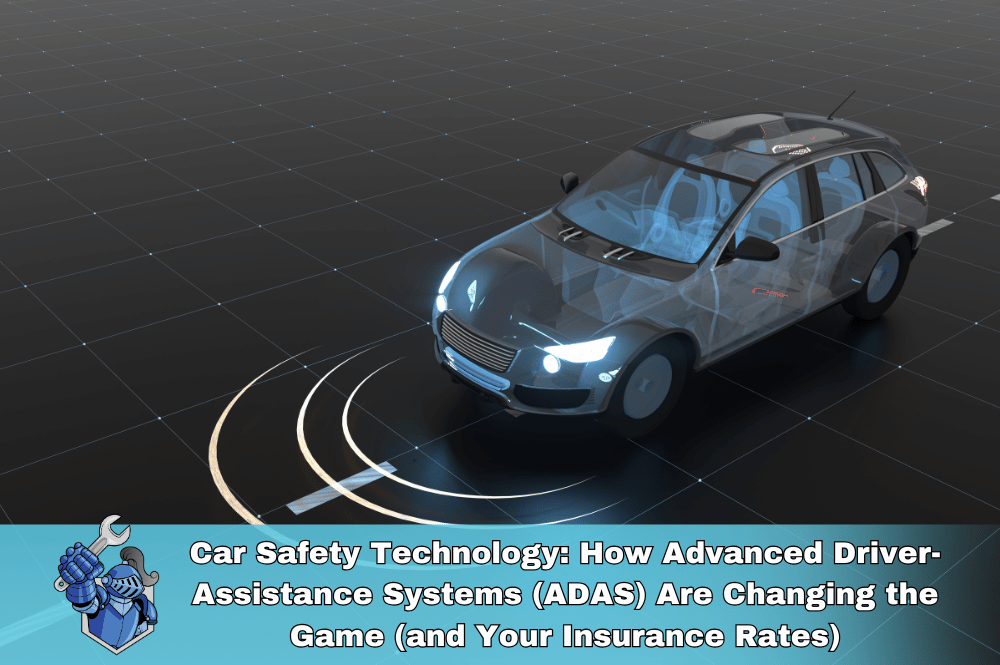 Car Safety Technology: How Advanced Driver-Assistance Systems (ADAS) Are Changing the Game (and Your Insurance Rates)
Car Safety Technology: How Advanced Driver-Assistance Systems (ADAS) Are Changing the Game (and Your Insurance Rates) Tesla Cybertruck: Overpriced or Over-the-Top Awesome?
Tesla Cybertruck: Overpriced or Over-the-Top Awesome? Selling Your Car in 2025? Don’t Make These Mistakes!
Selling Your Car in 2025? Don’t Make These Mistakes! Maximize Your Tesla Warranty: Smart Strategies for Extended Coverage
Maximize Your Tesla Warranty: Smart Strategies for Extended Coverage 2015 Ford Explorer: Avoid Costly Repairs with the Right Extended Warranty
2015 Ford Explorer: Avoid Costly Repairs with the Right Extended Warranty 2008 Toyota Camry: Common Repairs and Why Extended Coverage is a Smart Investment
2008 Toyota Camry: Common Repairs and Why Extended Coverage is a Smart Investment Electric Vehicles 101: What You Need to Know Before Making the Switch
Electric Vehicles 101: What You Need to Know Before Making the Switch 2016 Jeep Wrangler Extended Warranty: Coverage & Options
2016 Jeep Wrangler Extended Warranty: Coverage & Options Save on Car Repairs: NobleQuote vs. Toco Extended Warranty Review
Save on Car Repairs: NobleQuote vs. Toco Extended Warranty Review Honda A/C Compressor Failure: Causes, Symptoms & Repair Costs
Honda A/C Compressor Failure: Causes, Symptoms & Repair Costs 2015 Nissan Altima Warranty Expired? Get Extended Coverage Today!
2015 Nissan Altima Warranty Expired? Get Extended Coverage Today! Ford Power Steering Repair: Problems & Solutions
Ford Power Steering Repair: Problems & Solutions Car Scratches Driving You Crazy? 10 Steps to Fix Them Yourself
Car Scratches Driving You Crazy? 10 Steps to Fix Them Yourself Why Your Headlights Are Turning Yellow (And How to Prevent It)
Why Your Headlights Are Turning Yellow (And How to Prevent It) That Annoying Hemi Tick: Why It Happens & How to Stop It
That Annoying Hemi Tick: Why It Happens & How to Stop It Ford F-150: This Ain't Your Grandpa's Pickup!
Ford F-150: This Ain't Your Grandpa's Pickup! Zombie Apocalypse Survival Tip #1: Get an Extended Warranty (Brains Not Included)
Zombie Apocalypse Survival Tip #1: Get an Extended Warranty (Brains Not Included) 'Tis the Season to Be Jolly... and Protected: Why an Extended Warranty is the Gift That Keeps on Giving
'Tis the Season to Be Jolly... and Protected: Why an Extended Warranty is the Gift That Keeps on Giving The Car Repair Lottery: Are You Feeling Lucky?
The Car Repair Lottery: Are You Feeling Lucky? Extended Warranty Secrets: Unlocking Surprising Perks You Didn’t Know Existed!
Extended Warranty Secrets: Unlocking Surprising Perks You Didn’t Know Existed! Car Trouble? Your Insurance Might NOT Cover This!
Car Trouble? Your Insurance Might NOT Cover This! Nissan Frontier: Conquer Any Terrain in Style and Comfort
Nissan Frontier: Conquer Any Terrain in Style and Comfort Is Your Car a Ticking Time Bomb? The Unexpected Costs of Car Ownership
Is Your Car a Ticking Time Bomb? The Unexpected Costs of Car Ownership Off-Roading vs. Overlanding: What’s the Difference?
Off-Roading vs. Overlanding: What’s the Difference? Should You Buy a Truck? The Ultimate Pros and Cons List
Should You Buy a Truck? The Ultimate Pros and Cons List 7 Reasons Why the Chevrolet Chevelle Was More Than Just a Pretty Face
7 Reasons Why the Chevrolet Chevelle Was More Than Just a Pretty Face Ford Bronco: A Legend Reborn – Explore its Wild History & Modern Muscle
Ford Bronco: A Legend Reborn – Explore its Wild History & Modern Muscle Shifting Gears: A Deep Dive into Extended Warranties for Automatic and Manual Transmissions
Shifting Gears: A Deep Dive into Extended Warranties for Automatic and Manual Transmissions Exhaust Problems? Mufflers, Catalytic Converters, & Replacement Solutions
Exhaust Problems? Mufflers, Catalytic Converters, & Replacement Solutions Rules of the Road: Your Ultimate Guide to Safe Driving
Rules of the Road: Your Ultimate Guide to Safe Driving Is the Ford Explorer Reliable? What Owners Need to Know
Is the Ford Explorer Reliable? What Owners Need to Know Ford Mustang: A Guide to Popular Models & Years (1964-Present)
Ford Mustang: A Guide to Popular Models & Years (1964-Present) What is an ASE Certified Mechanic? (And Why Should You Care)
What is an ASE Certified Mechanic? (And Why Should You Care) Looking for the Perfect Gift for a Car Enthusiast? Try These 10 Puzzles
Looking for the Perfect Gift for a Car Enthusiast? Try These 10 Puzzles Hope for the Warriors: Standing Strong for Our Veterans and Military Families
Hope for the Warriors: Standing Strong for Our Veterans and Military Families